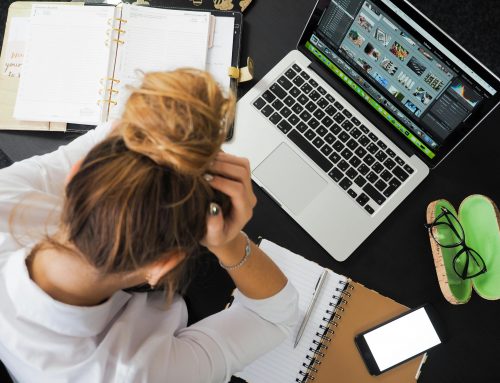When anxiety hits, most people reach for familiar coping tools: deep breathing, meditation, maybe a walk outside. And while those can help, many people with chronic anxiety find that the usual advice falls flat.
The truth is, anxiety isn’t always soothed by a single breathing technique or a motivational quote. Anxiety thrives in the body’s response patterns—the physical, mental, and emotional loops that keep the nervous system on high alert. That means managing anxiety often requires practical, everyday habits that regulate the body before the panic sets in.
The Science of Why Coping Skills Fail
When anxiety spikes, the body activates its fight-flight-freeze response. Heart rate increases, breathing quickens, and thoughts race. Logical thinking shuts down, which is why “just calm down” never works. The nervous system must be soothed first before the mind can follow.
That’s why coping skills work best when they’re preventative, not reactive. Think of them as daily maintenance for the brain, not emergency buttons for panic. Small, consistent actions create long-term regulation
Common Coping Skills You’re Probably Not Doing
- Cold Exposure (The Science-Backed Reset)
Splash cold water on your face, hold an ice cube, or step outside for a minute of cool air. Cold activates the dive reflex—a physiological reset that slows your heart rate and calms the vagus nerve, helping your body exit panic mode. It’s like hitting “refresh” on your nervous system. - Grounding Through Movement, Not Stillness
Many people assume anxiety management means sitting quietly, but movement is often more effective. Pacing, gentle stretching, cleaning, or even dancing helps discharge nervous energy. Your body needs to do something to tell your brain the threat has passed. - Structured Worry Time
Instead of fighting intrusive thoughts all day, give them an appointment. Set a 10-minute window to journal or voice-note your worries, then close the notebook. This trains your brain to postpone rumination instead of letting it run your day. - Vagus Nerve Activation
The vagus nerve controls your body’s rest-and-digest response. You can stimulate it by humming, singing, gargling, or doing slow, extended exhales. It sounds simple—but it’s direct communication with your body’s calm center. - Predictability and Routine
Your anxious brain loves certainty. Creating small routines—morning coffee rituals, bedtime wind-downs, daily checklists—reduces decision fatigue and quiets anticipatory anxiety. Predictability signals safety. - Co-Regulation with Others
We calm faster in connection than in isolation. Hug someone, sit near a trusted person, talk to a counselor, or even pet your dog. Human nervous systems regulate each other; this is why feeling “seen” physically changes how safe you feel. - Reducing Stimulation, Not Just Stress
Anxiety feeds on sensory overload—noise, screens, caffeine, clutter. Simplify your environment. Lower the brightness on your phone. Turn down background noise. When your surroundings quiet down, your body follows.
Why These Work Better Than “Just Relax”
Anxiety doesn’t respond to logic—it responds to safety. Each of these strategies sends physical signals of safety to your body first, allowing the mind to catch up. That’s why these coping tools often succeed where “positive thinking” fails.
It’s not about avoiding fear—it’s about teaching your body that you can feel it, survive it, and still be okay. Over time, that’s how anxiety loses power.
Small Habits, Big Shifts
The best coping skills for anxiety aren’t about perfection—they’re about presence. The smallest actions, practiced consistently, can make the biggest difference in how your body and brain respond to stress.
At I Choose Change, we specialize in helping individuals learn practical, neuroscience-based tools to manage anxiety. Whether through counseling, coaching, or group support, we’ll help you build a toolkit that actually works for your life.






